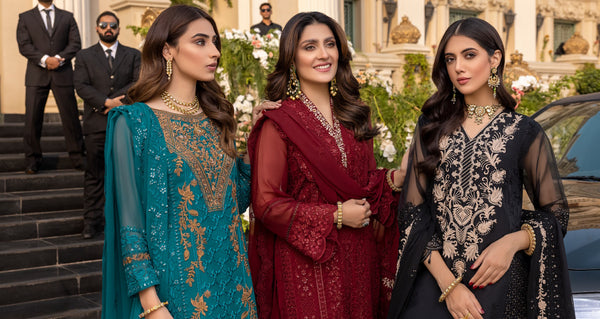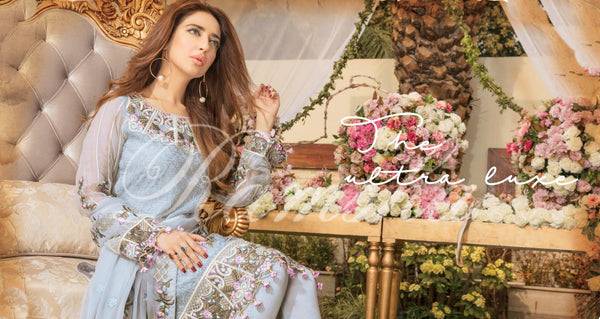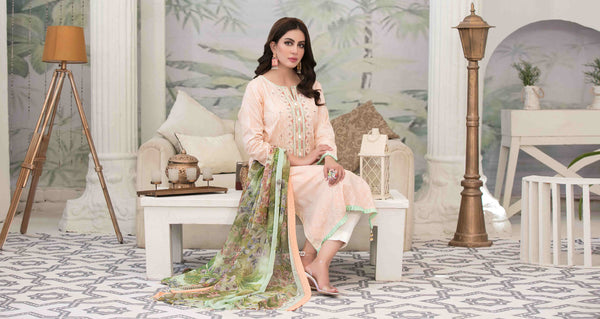November 26, 2021
A Guide to Saree in Pakistan
The Shalwar Kameez might have worn the hearts of many Pakistanis as the national dress of the country but the Pakistani Saree also still holds a place in the hearts of many. While Shalwar suits are like everyday dresses, the Saree seems to be more reserved for special occasions, functions, festivals and weddings.
The Saree has enjoyed a turbulent existence in Pakistan looking back to the years.
It almost went out of fashion when is was banned it in the 70s. The political stunt impacted Saree’s general acceptance in Pakistan although the dress is now currently enjoying a revival of some sort among teenagers, youth, as well as members of the upper and middle classes who like to style it on auspicious occasions.
The Making of The Saree
The Saree is an unstitched piece of rectangularly-shaped fabric usually made from about 5 to 9 yards of fabric. It is a very basic, very simple dress that is usually worn by wrapping the dress around the waist with the other end draped across the shoulder. Along with the Saree, women usually wear a petticoat and an upper garment to complete the attire.

Pakistani Women's Saree in Beige
On how the Saree came to be, historians have traced the origins of this iconic dress back to the Indus Valley Civilization of around 2800–1800 BC. Many others, however, believed that the Saree story started with the cotton revolution of the 5th millennium BC when weavers began using lac, turmeric, indigo, and red madder, among other kinds of dyes to make drapes for women. Wherever the story leads, one thing that’s sure is that that drape continues to win the hearts of women in Pakistan, all over Asia, and across the world, till today.
Saree Style and Design Tips
Sarees are simple and versatile.
But you don’t go around picking just about any Saree you can come across. To get the best look in your Saree, here are a few tips to help;
- Choose the right fabric; while lightweight fabrics like chiffon and georgette are best for everyday Sarees, you’ll be better off with cotton Sarees at parties and formal events.
- Pair your Saree with the right blouse. You might consider playing with prints, patterns, colors, and just about anything to accentuate your look.
- Tie your Saree neatly and perfectly so the draping can enhance your style and appearance.
- Pair Sarees with the right accessories. Gold, ruby, emeralds, and more, are fine, ethnic or western. Just go for something light rather than heavy.
The Saree might not be as popular as it once was in Pakistan but it’s slowly finding its way into the hearts of women across the Nation of Pakistan. From old women to young girls, Sarees of different styles and designs are filtering into fashion trends in Pakistan from time to time.

Embroidered Pakistani Saree by Maria B
If you want to add a Saree to your ethnic wardrobe fashion closet, it makes sense because it turns heads. These dresses are as gorgeous and iconic as they are easy to style. And although they are now commonly seen at weddings and other big parties, they’re still just as great for anyone in need of the ultimate everyday ethnic wear.
← Back to Blogs
Also in Pakistani Fashion
© 2016 - 2025 | FABRICOZ USA LLC | UBI: 605 576 733
Email: info@fabricoz.com | Ph: +1 206-457-3210
FABRICOZ HELP






